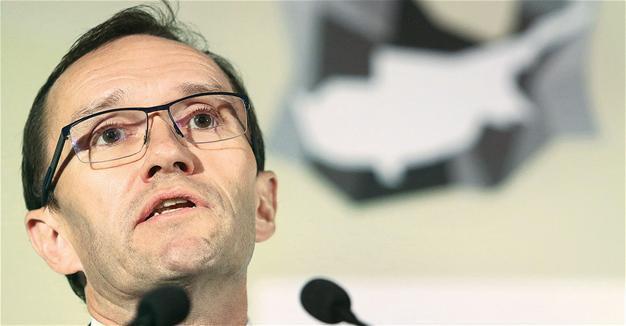Deal on Cyprus reunification closer than ever, says UN envoy
NICOSIA

A deal to find a peaceful solution to the more than 40-year-old conflict on the eastern Mediterranean island of Cyprus is closer than ever and could be clinched by the end of this year, a senior U.N. envoy said Nov. 1.
“We are way ahead of what has ever happened before,” Reuters quoted Espen Barth Eide, special adviser to United Nations Secretary-General Ban Ki-moon, as saying at a conference in Nicosia on Nov. 1.
Eide’s remarks come a week before Turkish Cypriot President Mustafa Akıncı and his Greek Cypriot counterpart, Nicos Anastasiades, are slated to meet at a Swiss resort for talks from Nov. 7 to 11 to pave the way for greater convergence between the two sides.
The Swiss meeting will focus on proposed territorial trade-offs as well as all other outstanding issues interdependently but will not be a make-or-break affair resulting in a fully-fledged agreement, the Norwegian diplomat said at the conference.
Ban is due to be present at negotiations starting in the resort of Mont Pelerin on Nov. 7 in the presence of Akıncı and Anastasiades.
“No negotiations on Cyprus have come close to the level we are at now,” Eide said about the past peace efforts.
The eastern Mediterranean island was divided into a Turkish Cypriot state in the north and a Greek Cypriot state in the south after a 1974 military coup aimed at Cyprus unification with Greece which was followed by the intervention of Turkey as a guarantor power.
The two leaders restarted peace talks in May 2015 after Akıncı was elected as president of Turkish Cyprus.
Talks are focused on reuniting Cyprus as a loose federation of two constituents, largely self-governing states, which is very likely to entail moving a cease-fire line boundary now cleaving Cyprus east to west, and will be tackled in next week’s talks.
Security issues and other issues are expected to be addressed after the territorial dispute is worked out.
Eide, who has presided over dozens of sessions involving Anastasiades and Akıncı since the latter’s election in 2015, said “practically every meeting” had yielded more convergence.
“It is possible to arrive at a comprehensive political settlement [by the end of the year] but we have to use every single day from now on to maximum effect to do so,” Eide said at the conference in Cyprus’s divided capital Nicosia.
From Oct. 30, Nicosia was partitioned not just by the cease-fire line monitored by U.N. peacekeepers but by time. Northern Cyprus is one hour ahead of the south, after the Turkish Cypriot authorities decided to follow Ankara’s cue and stick to daylight saving hours on Oct. 30.
 A deal to find a peaceful solution to the more than 40-year-old conflict on the eastern Mediterranean island of Cyprus is closer than ever and could be clinched by the end of this year, a senior U.N. envoy said Nov. 1.
A deal to find a peaceful solution to the more than 40-year-old conflict on the eastern Mediterranean island of Cyprus is closer than ever and could be clinched by the end of this year, a senior U.N. envoy said Nov. 1.